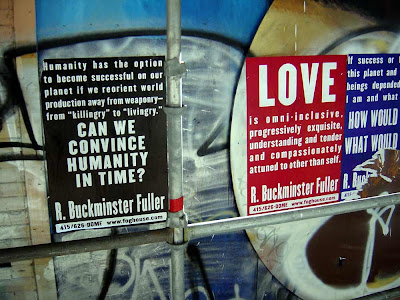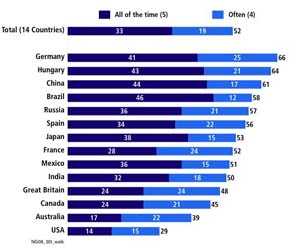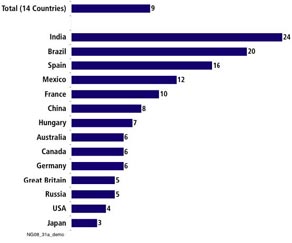
Human development is about much more than the rise or fall of national incomes. It is about creating an environment in which people can develop their full potential and lead productive, creative lives in accord with their needs and interests. People are the real wealth of nations. Development is thus about expanding the choices people have to lead lives that they value. And it is thus about much more than economic growth, which is only a means—if a very important one—of enlarging people’s choices.
What is Human Development?
The U.S. itself also has the largest gap and inequality between rich and poor compared to all the other industrialized nations. For example, the top 1% receives more money than the bottom 40% and the gap is the widest in 70 years. Furthermore, in the last 20 years while the share of income going to the top 1% has increased, it has decreased for the poorest 40%.
environmental social issues (usa proverty)
The World Bank and Poverty
The World Bank, being a major international institution, is worth looking at to see how its policies help or impact poverty and development around the world.
The World Bank produces an annual report, called the World Development Report. The Bank regards this as its flagship report. Most mainstream economists use this report in some way or form, and it is one of the few reports on development that the US mainstream media reports on (because it usually shows the US, and its policies that it prescribes to the rest of the world, in a favorable light.)
The way the 2000 report was released highlighted another problem with the World Bank, and how it doesn’t like to accept criticism on the current forms of globalization and neoliberalism. For the 2000 report, Ravi Kanbur, a professor from Cornell University had been asked to lead up the report team.
Kanbur won respect from NGO circles as he tried to be inclusive and take in a wide range of views, something the Bank has been criticized for not doing (which is a problem in itself!). However, as the report was to be published, he resigned because he was unreasonably pressured by the Bank to tone down sections on globalization, which, amongst other things called for developing nations to accept market neoliberalism cautiously.
The World Bank was apparently influenced itself by the US Treasury on this—this is not new though; critics have long pointed out that the Bank is very much influenced by the US, thus affecting the chance of real progress being made on poverty issues around the world.
The following quotes collected from the Bretton Woods Project, reveal some interesting insights:
The Washington Consensus has emerged from the Asia Crisis with its faith in free markets only slightly shaken. Poverty eradication is now the menu, but the main dish is still growth and market liberalisation, with social safety nets added as a side dish, and social capital scattered over it as a relish. The overall implication of the resignation is fairly clear. The US does not want the World Bank to stray too far from its agenda of economic growth and market liberalisation. Ravi Kanbur’s draft has raised a few too many doubts about this agenda, and strayed too much towards politics.
The Nation, Bangkok, 5 July, 2000To keep the Bank afloat Wolfensohn has to steer between two major constituencies. The first are the critics, the second is the US Treasury. You don’t need to be a World Bank economist to do the cost benefit analysis. To save the Bank, and his own reputation, it is essential that the Bank’s policies and public pronouncements do not err too far from its main shareholder and political protector, the US Treasury.
Focus on Trade<, Issue Number 51, Focus on the Global South, June 2000The World Bank has often come under criticism for its development projects not actually helping the societies that they claimed they will. One such example is the numerous dam projects that have seen lives devastated, where millions have been displaced and people have not seen the benefits promised, while at the same time, the environment has degraded and crucial arable land has been flooded. This is discussed further on this site’s hunger and poverty causes section.
The World Bank’s actual monetary investment amount was just four percent of the cost. However their participation and stated commitment to poverty-combating development gave political backing that allowed multinational oil companies (who were the main investors) to raise sufficient capital on the international capital markets, which they would not have been able to otherwise do.
The World Bank had therefore highlighted this project as a prototype for the extractive industry, designed to carry oil wealth not to a few but to the mass of the poor.

walking and bike (health you - earth)Poverty in Industrialized Countries
But poverty is not restricted just to developing countries. Industrialized nations are also seeing a sharp increase in poverty. While the current form of globalization is resulting in additional wealth, the disparities are sharp. Less people are turning out to be benefiting while an increasing number are left behind.
Even in places such as Europe and USA, poor people still do not seem to get enough attention or resources to help alleviate their problems. For example, consider Britain:
- Even though Britain is one of the most affluent members of the European Union (EU), a report shows that UK is the worst place in Europe to be growing up if you are poor, as more children are likely to be born in to poverty there, compared to elsewhere in the EU.
- The UK National Office of Statistics also shows that disparities between rich and poor continue to grow in UK, as reported by a UK newspaper, The Independent, April 2000. Priorities of the Labour Party government have often been questioned (as with priorities of any party) but highlighted by how at the turn of the century, some 150,000 people were homeless in Britain, yet the government helped build the Millennium Dome, that cost over a billion US dollars. Andrew Simms, policy director of the New Economics Foundation in an article mentioned further above about inequality notes that
Crime and unhappiness stalk unequal societies. In the UK the bottom 50% of the population now owns only 1% of the wealth: in 1976 they owned 12%. Our economic system’s incentive structure, instead of “trickle-down”, is causing a “flood-up” of resources from the poor to the rich. Inequality leads to instability, the last thing the country or world needs right now.
Even the former hardline conservative head of the International Monetary Fund, Michel Camdessus, has come to the conclusion that “the widening gaps between rich and poor within nations” is “morally outrageous, economically wasteful and potentially socially explosive”.
Andrew Simms, Now for a maximum wage, The Guardian, August 6, 2003A UNICEF report in February 2007 finds that UK is failing its children as it comes bottom of all industrialized nations in terms of child well being. UK child poverty has doubled since 1979, for example.
prison population (usa proverty)
As another example, the U.S. is worth looking at as well.
It may be surprising to most people to realize that USA, the wealthiest nation on Earth, has the widest gap between rich and poor of any industrialized nation, and disparities continue to grow (See also this article and this article about how the media deals with such issues.) United For a Fair Economy reported that for 1998 almost 70% of the wealth was in the hand of the top 10%. In another report, they mention that the gap has widened in recent decades. “In 1989, the United States had 66 billionaires and 31.5 million people living below the official poverty line. A decade later, the United States has 268 billionaires and 34.5 million people living below the poverty line-about $13,000 for a three-person family.” Even during the “booming economy” (for some in society, not all) in the late 1990s and early 2000, there was an increasing gap between the rich and poor. Even into 2002, fighting poverty appears not to have been a major election campaign issue as with recent previous election campaigns. Then chairman of the Federal Reserve, Allan Greenspan, revealed concerns in mid-2005 that the increasing and widening income gap might eventually threaten the stability of democratic capitalism itself in the US. While health and education are key to any economy or nation to grow and be strong, both of these suffer issues of access, equality and pressure to cut back (including elsewhere around the world as discussed in the structural adjustment part of this site).
- For example, as a summary of a report titled Economic Apartheid in America mentions, “that the United States is the only industrialised nation that ‘views health care as a privilege, not a basic human right.’”. (Unfortunately the report itself not available on the Internet, but is produced by United for a Fair Economy where you can see many extracts and similar reports.)
- In addition, as good education is linked to a strong economy, Business Week reports on a study that analyses OECD data from 1994 to 1998, and summarizes that “the literacy of American adults ranks 10th out of 17 industrialized countries.” In addition, the issue of inequality was highlighted: “More troubling, the U.S. has the largest gap between highly and poorly educated adults, with immigrants and minorities making up the largest chunk of those at the bottom.” While Business Week concentrates on the U.S. they also point out that “Despite the mediocre U.S. ranking, it still beat out most of its major trading partners except Germany, including France, Britain, and Italy. (Japan didn’t participate [in the study].)”The above-mentioned UNICEF report on child health found that as well as the UK being ranked bottom of all rich countries, the US ranked second to last. The report suggests that absolute wealth isn’t necessarily a guarantor of poverty alleviation or a measure for indicators such as child well-being, and factors such as inequality are also important.
And it isn’t in just these two industrialized nations that these problems persist. A Guardian news report, for example, shows that certain types of poverty in various European cities can be regarded as worse than in some other parts of the world which one would not normally think would compare with Europe, such as India.
Author by Anup Shah Created: Monday, July 20, 1998









1 comment:
Dr Taylor teaches us how to attain deep inner peace - easily, simply, without drugs, anytime we want it. Forgive me for doing everything I can to be sure everyone reads this book and sees this video, but I think all of us benefit and in the larger sense, if everyone reads this, our world will benefit in a very large way.
Post a Comment